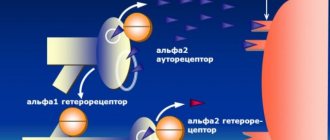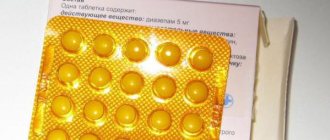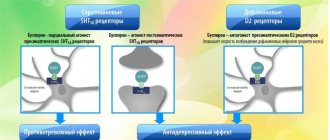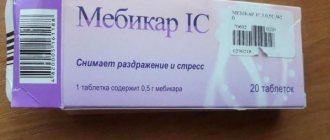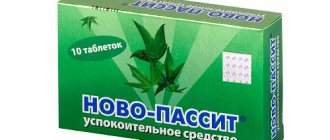Amantadine (trade name Midantan, Symmetrel) is an antiviral and antiparkinsonian drug that is used for a wide range of neurological diseases. Amantadine is available in three variations - sulfate, glucuronide or hydrochloride.
The latter is a white crystalline powder that dissolves in a small amount of alcohol. This drug was first used in the mid-20th century as an antiviral drug, and after some time its ability to treat Parkinson's disease was discovered.
How does the drug work?
The action of Amantadine is aimed at glutamate receptors. By blocking them, the effect on the neostriatum is reduced against the background of dopamine deficiency - this is how an antiparkinsonian effect is achieved. The antiviral effect is that the drug prevents the penetration of the virus (influenza A) into the cells of the body's tissues.
Route of administration: oral. Next, Amantadine is absorbed in the digestive tract and enters the blood, where its maximum concentration is observed after 4 hours. It should be noted that the drug can penetrate the placental barrier, which has an adverse effect on the fetus. "Amantadine" (instructions for use - below) is contraindicated not only for pregnant women, but also during breastfeeding.
Contraindications and restrictions
The drug is not recommended for use in:
- the occurrence of allergic reactions to one of the components of the medication (before starting to take the medication, it is recommended to undergo a test for possible allergens);
- psychological and mental illnesses (schizophrenia, unreasonable aggression, fear, etc.);
- if there is a history of epilepsy, glaucoma, thyrotoxicosis and prostatic hyperplasia , these are diseases for which taking this medication is prohibited, since it can only aggravate the current situation with the patient’s health;
- pregnancy and lactation , since the drug penetrates directly into the mammary glands and mixes with milk, which can negatively affect the child’s health.
It is strictly contraindicated to take Amantadine if you have liver and kidney diseases, heart problems, allergic dermatitis, hallucinations and clouding of consciousness.
Compound
The active ingredient is amantadine sulfate, but the composition contains other auxiliary components. They are especially worth paying attention to if there is an allergic reaction. The drug contains lactose monohydrate, gelatin, talc, starch and cellulose. Also contains magnesium stearate, silicon and titanium dioxide, polyethylene glycol.
Pharmacokinetics and pharmacodynamics
The drug is included in the pharmacological group of dopaminomimetics, antiparkinsonian and antiviral drugs (do not include HIV viruses). It has a pronounced antiviral effect on a number of diseases caused by mutated bacteria, including herpes zoster (shingles). Blocks the penetration of the A-virus into cells and tissues, exhibits an anti-parkinsonian effect on dopamine cells of the brain.
Once inside the body through the bloodstream, it is completely absorbed in the intestine, and after four hours the maximum concentration in the blood plasma is reached. Freely passes into breast milk through the placenta. The metabolic process occurs in the liver, inactive metabolites are excreted with human waste products (urine). The half-life varies from 12 to 30 hours, depending on the form of the active substance (sulfate/hydrochloride).
"Amantadine": instructions for use
How to take the drug? Amantadine tablets (the price depends on the place of purchase - 130-150 rubles) are recommended to be used in the first half of the day, as excessive activation of the central nervous system is possible, and consequently, the occurrence of insomnia and other side effects (dizziness, headache). A single dose depends on the disease and the desired effect. It is determined only by the attending physician, taking into account the individual characteristics of the patient and the clinical case. For parkinsonism, in the first week, as a rule, 100 mg of the drug per day is prescribed, and then the dose is increased (maximum - 400 mg).
The treatment plan is adjusted depending on the presence of concomitant diseases in the patient, for example, in case of renal failure and in old age, the dosage should be reduced. For a pronounced antiparkinsonian effect, the drug is combined with other drugs. Monotherapy is ineffective. You should not abruptly stop taking the drug, as there is a risk of increased symptoms of Parkinson's disease, including akinetic crises. This should be especially taken into account when pronounced side effects are detected - withdrawal from the drug should occur smoothly, the dose should be gradually reduced.
Antiviral therapy consists of taking the medicine every 12 hours. As a rule, the doctor prescribes 1 tablet (100 mg), but for older patients the dose is reduced (maximum daily dose is 100 mg). Treatment should begin immediately after the first symptoms appear; the course of therapy is usually 5 days. For prophylaxis, you should take 100 mg/day, the duration of administration is from 2 to 4 weeks.
Treatment for neuralgia caused by H. zoster lasts about 14 days, and therapy should begin immediately after diagnosis.
Special instructions and conditions
Many experts insist that if any of the above side effects occur in a patient, the drug should be stopped gradually, reducing the dose used by the patient every day, since a sudden refusal of the drug can lead to undesirable consequences.
Article on the topic: The progenitor of nootropics Piracetam in the service of the brain and central nervous system
When undergoing a course of treatment, it is recommended to refuse to perform work where you will need to concentrate (driving a car, working with dangerous mechanisms, etc.).
The drug is incompatible with alcohol, since their simultaneous use can greatly worsen the patient's condition.
If the functioning of the kidneys and liver is impaired, you should not undergo treatment with this drug, as it puts a very strong burden on them.
Amantadine is incompatible with other drugs, but there are many of its analogues.
Doctors strongly do not recommend using this drug during pregnancy or breastfeeding, as it mixes with the blood and passes into the mother's breast milk.
Children under 14 years of age should not take this potent medication.
Side effects
"Amantadine" (instructions for use included) has a large list of side effects, which is mainly due to its ability to penetrate the blood-brain barrier and affect the central nervous system. Among them are anxiety, headaches and dizziness, nervous agitation, nightmares, and hallucinations (rarely). Decreased attention and confusion are common, so during treatment with Amantadine you should not drive or perform dangerous work that requires high concentration. Other side effects are leukopenia, nausea, diarrhea, urination problems, skin rashes, swelling (especially in patients with heart failure).
Overdose and side effects
Other antiparkinsonian drugs enhance the effect of Amantadine. This feature provides a beneficial effect in the treatment of late stages of Parkinson's disease. In combination with thiazide diuretics, there is a risk of toxic effects of the drug. Possible reduction in renal clearance.
In combination with central nervous system stimulants, signs of its excessive excitation appear. Together with quinine, quinidine, trimethoprim, sulfamethoxazole, impaired renal clearance occurs, an increase in plasma concentration, and a decrease in the rate of excretion in urine. Anticholinergic blockers increase the risk of potentiating anticholinergic effects.
Combination with alcohol causes dizziness, confusion, and orthostatic hypertension. Before prescribing a medication, you should undergo a mandatory allergen test. If a reaction to the constituent components has previously occurred, Amantadine is contraindicated.
For the prevention and treatment of influenza, Amantadine is compatible with Rimantadine. At the same time, the risk of side effects is greater. The medication affects processes related to reaction speed and concentration. During the course of treatment, it is undesirable to drive vehicles or other mechanisms.
What drugs cannot be combined with Amantadine?
The medicine is usually combined with anticholinergic drugs, as well as other drugs for the treatment of parkinsonism, and a mutually enhancing effect is observed. However, combining this drug and Levodopa is not recommended, as there is a risk of increased effects on the central nervous system (psychosis, hallucinations, nightmares). For the same reason, Amantadine is not taken simultaneously with Memantine.
It is necessary to stop drinking alcohol, as this entails an increased toxic effect on the central nervous system. In addition, the simultaneous use of Amantadine with diuretics is not allowed, since in this case the excretion of the antiviral agent is disrupted, and therefore its concentration in the blood can reach a toxic level.
Dosage form
Analogues for the drug Amantadine are selected by the doctor in accordance with the diagnosis and concomitant diseases. The most common analogues:
- PC Merz (anti-Parkinsonian drug, for the treatment of neurodegenerative brain pathologies).
- Midantan (antiviral and antiparkinsonian, has the effect of reducing muscle tone, increasing mobility, and has less effect on tremor).
- Vinpotropil (has a nootropic and cerebroprotective effect, a relaxing effect on cerebral vessels).
- Bromocriptine CV (suppresses the production of prolactin, does not affect the level of other pituitary hormones).
- Madopar (antiparkinsonian drug, eliminates muscle rigidity, dysphagia, tremor, drooling).
- Cyclodol (used as part of a complex treatment of diseases of the extrapyramidal system, most often parkinsonism).
- Pramipexole Orion (used to treat idiopathic Parkinson's disease or restless legs syndrome).
- Parlodel (prolactin inhibitor, effective in complex therapy of prolactin-dependent diseases, does not correct the level of other pituitary hormones).
- Azilect (can be used both as monotherapy for parkinsonism and together with levodopa).
- Bromergon (antiparkinsonian drug, does not affect the production of other pituitary hormones).
Replacing the original medicine with any of its analogues can only be done as prescribed by a doctor.
active ingredient: amantadine sulfate
1 tablet contains amantadine sulfate 100 mg
excipients: lactose, microcrystalline cellulose, potato starch, gelatin, povidone, croscarmellose sodium, talc, colloidal silicon dioxide, magnesium stearate, Opadry II White (polyethylene glycol, polyvinyl alcohol, talc, titanium dioxide (E 171)).
Film-coated tablets.
A combination of amantadine with anticholinergics and other antiparkinsonian drugs is possible. In combination with other antiparkinsonian drugs, a mutual enhancement of the therapeutic effect is observed. However, concomitant use of amantadine and anticholinergics or levodopa may increase confusion, hallucinations, nightmares, gastrointestinal disturbances, or other atropine-like side effects. Psychotic disorders may occur in patients receiving amantadine and levodopa.
Concomitant use with memantine should be avoided.
In rare cases, worsening of psychotic symptoms may occur in patients who use amantadine and antipsychotic drugs concomitantly.
The simultaneous use of amantadine and drugs or substances that act on the central nervous system (including alcohol-containing drugs) may increase the toxic effect on it. In such cases, careful monitoring of the patient is recommended. During treatment with amantadine, you should not drink alcoholic beverages.
The simultaneous use of diuretics like triamterene/hydrochlorothiazide and Amantine may reduce the elimination of amantadine from the blood plasma, which will lead to toxic concentrations of the latter in plasma.
The simultaneous use of diuretics and Amantin should be avoided.
The simultaneous use of Amantin and drugs that prolong the QT interval is contraindicated.
Composition of commercial drugs (Midantan, Symmetrel, list of all in the plate), which include amantadine sulfate:
- 100 grams of amantadine sulfate;
- lactose monohydrate;
- microcrystalline cellulose additives;
- natural potato starch;
- gelatin without additives;
- povidone;
- croscarmellose sodium;
- talc derivative;
- colloidal hydrous silica;
- magnesium stearate;
- polyethylene glycol;
- natural alcohol;
- natural biological additives (E 171 – dioxide food additive, titanium derivative).
Release form: tablets and solution.
"Amantadine": analogues. What should you buy?
Among the drugs that contain amantadine as an active ingredient (the instructions for using analogues are different), one can highlight PC-Merz and Neomidantan. The latter is available in the form of gelatin capsules filled with white powder. "PK-Merz" - orange-coated tablets. The list of indications for this drug is more extensive. "PK-Merz" is also used for traumatic brain injury, endogenous intoxication, cerebrovascular accident, dementia, Huntington's chorea.
Pharmacological properties
Antidementia (for the treatment of dementia).
The active ingredient is an NMDA receptor antagonist. When affecting the nervous system and brain function, it inhibits the neurotransmission of glutamates and significantly reduces the intensity of neurodegenerative processes. Among other things, there is a neuromodulatory effect of the drug, which regulates the processes of the central nervous system.
After a course of therapy, there is a stabilization of mental activity, which is noticeable in restrained behavior, improved memory, and increased concentration.
Fatigue and depression disappear. The area of action of the active substance of the drug also affects motor function, and correction of various disorders is carried out.
The medicine belongs to the group of pharmacological agents that have the following properties:
- antiparkinsonian;
- antispastic;
- neuroprotective.
Reviews
According to reviews from doctors and patients, the drug provides a pronounced therapeutic effect in a short time. Those treated with this medicine for viruses note a rapid improvement in their health. Among the side effects, nervous agitation and attention disorder are usually observed, others are rare. Many doctors recommend Amantadine as an addition to combination therapy for parkinsonism; reviews about it in general are mostly positive. Although every drug has its opponents.
Amantadine is an inexpensive antiviral drug that can also be used for parkinsonism. Before use, you should definitely consult with a specialist who, taking into account the characteristics of the body and concomitant pathologies, will select the required dose or suggest some other drug that has a similar effect.
From application practice
Doctor's review and reviews of patients who are being treated with Amantadine.
The drug Amantadine is an antiparkinsonian and antiviral drug, which, through its effect on the body, is capable of blocking glutamate receptors, thereby reducing the influence of glutamate neurons on the neostriatum, which develops in conjunction with Dopamine deficiency, which provokes Parkinson's disease.
Lapina Marina Sergeevna, 35 years old, neurologist
At the age of 25, I overcame anorexia. The doctor prescribed me to take the medicine twice a day, I have been taking it for 2 months. Now I feel better, I have an appetite, more strength and confidence, I haven’t noticed any side effects yet.
Anastasia, 25 years old
This drug helps my father well with Parkinson’s disease (he takes it in parallel with Madopar). His gait has become more stable, he has stopped constantly falling, he is now almost completely self-sufficient and has been feeling very good lately.
Nikolay, 40 years old
Pros:
- few side effects;
- natural composition;
- short course of treatment.
Minuses:
- incompatibility of the drug with many medications;
- limited number of patients who are allowed to be admitted.
Memantine and Memantine Canon
Pharmacies offer several varieties of the drug, which confuses many patients. It’s easy to figure out what is better and what are the differences.
The first thing that catches your eye is the price; Akatinol Memantine costs almost twice as much. This indicates the originality of the remedy; it is preferable to use it for therapy.
Canon is a generic drug, but exhibits good pharmacological properties to stabilize the condition or provide a supporting effect. In these matters, the decision remains with the competent opinion of a professional.
Price Akatinol Memantine, where to buy
The average price of Akatinol Memantine tablets is: 10 mg No. 30 – 1700 rubles; 10 mg No. 90 – 4300 rubles; 20 mg No. 28 – 2600 rubles; 20 mg No. 56 – 4800 rubles; 20 mg No. 98 – 8000 rubles.
You can buy a tablet set of Akatinol Memantine No. 28 for an average of 1,700 rubles.
- Online pharmacies in RussiaRussia
ZdravCity
- Akatinol memantine tab. p.p.o. 20mg n98Merz Pharma/Rottendorf Pharma
Pharmacy Dialogue
- Akatinol Memantine (tab.p.pl/vol.20mg No. 56)
- Akatinol Memantine (tab.p.pl/vol.20mg No. 98)
- Akatinol Memantine (tab.p.pl/vol.10mg No. 30)
- Akatinol Memantine (tablet p/o set (5 mg No. 7.10 mg No. 7.15 mg No. 7.20 mg No. 7))
- Akatinol Memantine (tab.p.pl/vol.10mg No. 90)
Europharm* 4% discount using promo code medside11
- Akatinol memantine 20 mg No. 28 tabletRottendorf Pharma GmbH/Merz Pharma
- Akatinol memantine set 5 mg plus 10 mg plus 15 mg plus 20 mg n28 tabMerz Pharma GmbH and Co. KGaA
- Akatinol memantine 10 mg n90 tablRottendorf Pharma GmbH
- Akatinol memantine 10 mg n30 tabletRottendorf Pharma GmbH/Merz Pharma GmbH and
show more
You can buy medicine in Moscow in a network of pharmacies or by placing an order in an online pharmacy.
The average cost is represented by a wide range, which is due to the presence of different packaging, differing in the number of tablets and the concentration of the active ingredient.
The price of 90 tablets of 10 mg is within 1265 rubles, 60 tablets of 20 mg will cost more - about 3260 rubles.
The price of 30 tablets of 10 mg is more affordable - within 639 rubles.
But for long-term treatment, it is more profitable to purchase Akatinol Memantine 20 mg 98 pcs. (price about 7790 rub.).

